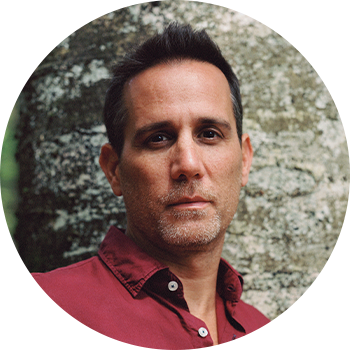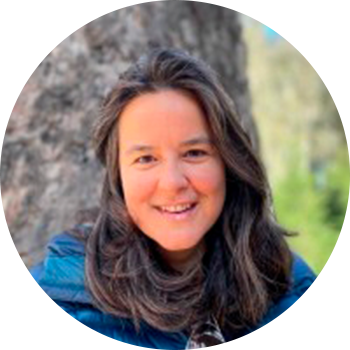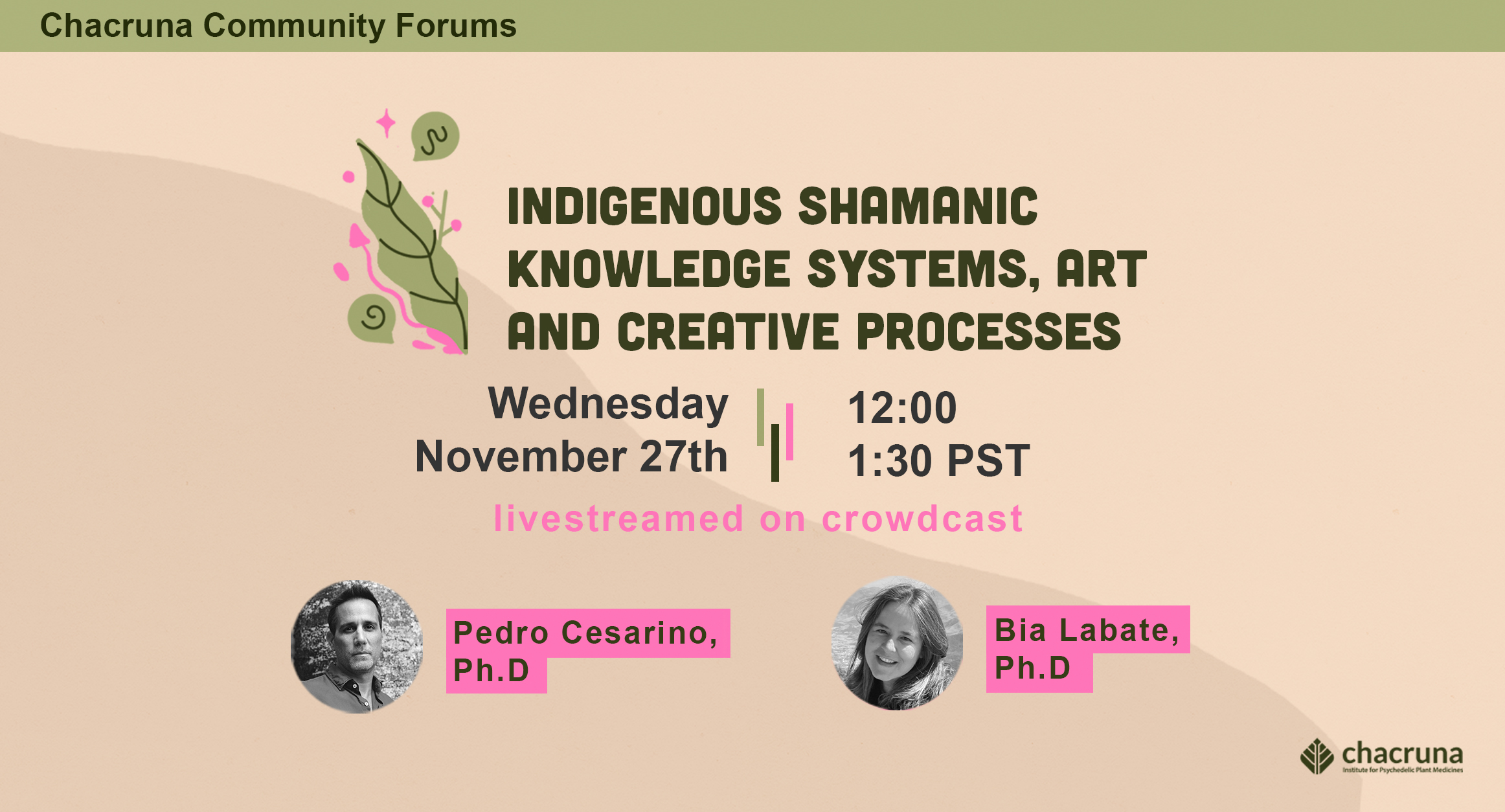- Meet Chacruna at Psychedelic Science 2025 - May 27, 2025
- Psychedelics and Attachment: Fundamentals, Implications, and New Frontiers - May 16, 2025
- Development Outreach Internship (OPEN) - May 6, 2025
Wednesday, November 27th, 2024 from 12:00-1:30pm PST
Register for this event here.
In our next Community Forum we are diving into the entangled topics of art, literature, Amazonian shamanism, and Indigenous knowledge, cosmologies, and traditions. Pedro de Niemeyer Cesarino will lay out his unique trajectory as an anthropologist and writer, his research with Marubo Indigenous people from the Amazon, and his literary work. What are the relations between art and anthropology? What are the ties between ethnology and fiction literature? How did his literary production dialogue with his research on shamanism and Amazonian narratives? Among several books he has published “Oniska: Poética do Xamanismo na Amazônia” (Oniska: the Poetry of Shamanism in the Amazon), an ethnographic research project on cosmology, shamanism and poetics. Pedro has a Ph.D. in Social Anthropology (National Museum, UFRJ) and is currently a professor at the University of São Paulo. Our interviewer for this forum is Bia Labate, who has a Ph.D. in Anthropology (Unicamp) and is the Executive Director of Chacruna Institute.

Pedro Cesarino is Professor of the Department of Anthropology at the University of São Paulo. He is specialized in shamanism, oral traditions and cosmology of Amazonian native peoples and has published several articles and books such as Oniska – poética do xamanismo na Amazônia (Perspectiva, 2011) and “Amazonian shamanic enquiry: formulaic composition and specialized discourse” (Journal of the Royal Anthropological Institute, 2023). From 2004 to 2009 he conducted fieldwork research among the Marubo from Vale do Javari Indigenous reservation, Amazonas state, Brazil. As a novelist he published Rio Acima (Companhia das Letras, 2016, translated to French as L’attrapeur d’oiseaux, Rivages, 2022) and A repetição (Todavia, 2023).

Dr. Bia Labate (Beatriz Caiuby Labate) is an anthropologist, educator, author, speaker, and activist, committed to the protection of sacred plants while amplifying the voices of marginalized communities in the psychedelic science field. As a queer Brazilian anthropologist based in San Francisco, she has been profoundly influenced by her experiences with ayahuasca since 1996. Dr. Labate has a Ph.D. in social anthropology from the University of Campinas (UNICAMP) in Brazil. Her work focuses on plant medicines, drug policy, shamanism, ritual, religion, and social justice. She is the Executive Director of the Chacruna Institute for Psychedelic Plant Medicines and serves as a Public Education and Culture Specialist at the Multidisciplinary Association for Psychedelic Studies (MAPS). Additionally, she is a Visiting Scholar at the Graduate Theological Union in Berkeley and an advisor for the Veteran Mental Health Leadership Coalition. Dr. Labate is also a co-founder of the Interdisciplinary Group for Psychoactive Studies (NEIP) in Brazil and the editor of its site. She has authored, co-authored, and co-edited 28 books, three special-edition journals, and numerous peer-reviewed and online publications (http://www.bialabate.net).
This talk will be recorded and immediately available for rewatch for all attendees.
Do you love Chacruna? Want free entry to events, access to our online member community and exclusive events, free merchandise, and much more! Become a member!
Scholarships Available – apply here.
Take a minute to browse our stock:
Did you enjoy reading this article?
Please support Chacruna's work by donating to us. We are an independent organization and we offer free education and advocacy for psychedelic plant medicines. We are a team of dedicated volunteers!
Can you help Chacruna advance cultural understanding around these substances?









